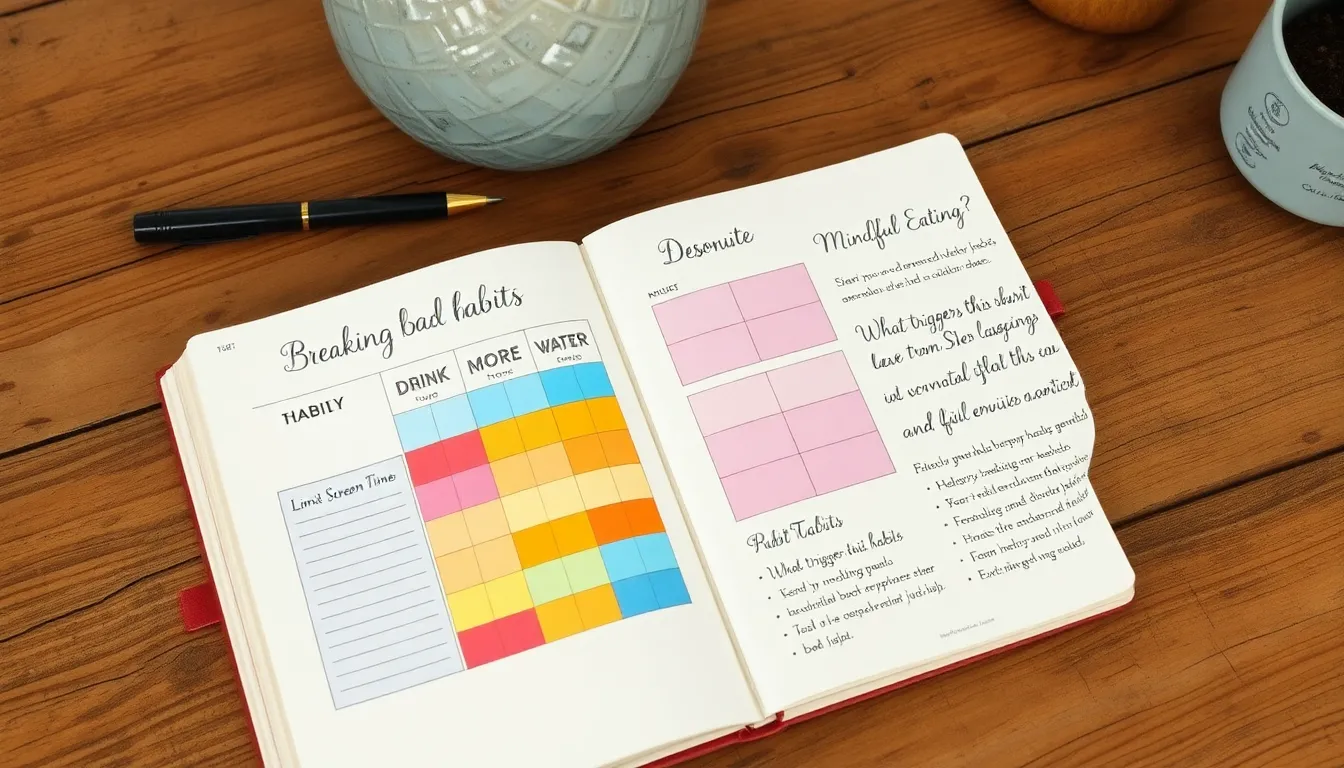Breaking bad habits can feel daunting, but journaling offers a powerful way to unlock personal growth and healing. By putting pen to paper, you create a safe space to explore and transform these patterns.
In this article, discover simple, effective journaling techniques that empower you to understand and gradually reshape your habits. Embrace the journey to a more mindful and fulfilling life.
Identify Triggers with Daily Logs

Begin by noting daily situations and emotions. Identify patterns that trigger unwanted habits. Reflect each day for clarity and growth.
Use prompts like:
- “What made me feel stressed today?”
- “When did I crave my habit most?”
Awareness leads to change.
Track Progress with Habit Charts

Visualize your progress by using habit charts. Draw a simple grid in your journal to track daily habits and mark each success. This provides a clear view of your journey and motivates you to stay consistent.
Enhance your chart’s impact with prompts like:
- What small victory did I achieve today?
- How did completing this habit make me feel?
These reflections reinforce positive behaviors and boost self-awareness.
Reflect on Setbacks Weekly

Regularly reflecting on setbacks helps you learn and grow. Dedicate a few minutes each week to identify what triggered your habits. Understanding patterns is key to change.
Use prompts to guide your reflection:
- What did I learn from this setback?
- How can I handle similar situations better?
These insights build resilience and guide future actions.
Set Clear, Achievable Goals

Identify clear, small goals to transform your habits. Use your journal to track specific actions for each goal, such as “replace evening TV with a 10-minute walk.”
Regularly evaluate your progress. Reflect with prompts like:
- “What small victory did I achieve today?”
- “How can I improve tomorrow?”
This keeps you motivated and focused.
Celebrate Small Wins Regularly

Celebrate each small victory to reinforce progress. After achieving a goal, jot down a quick reflection in your journal. This reinforces positive behavior and builds momentum.
Try prompts like: “What small win am I proud of today?” or “How did this success make me feel?” Regular acknowledgment boosts motivation and resilience.
Conclusion: Creating Beautiful Outdoor Spaces
In conclusion, embracing journaling as a tool to break bad relationship habits involves five key concepts: self-awareness, honesty, accountability, reflection, and growth. By fostering self-awareness, you illuminate the patterns that hinder your relationship’s potential. Practicing honesty in your entries allows you to confront these challenges head-on. Accountability ensures you stay committed to change, while regular reflections help track your progress. Finally, embracing growth empowers you to transform these insights into actionable change.
To start harnessing the power of journaling today, dedicate just ten minutes to write about one bad habit you wish to change, focusing on your feelings and intentions. This small step can be the catalyst for profound transformation in your relationships.
As you embark on this journey, remember to save or bookmark this article as a valuable resource for ongoing support and guidance. By revisiting these techniques, you’ll continually reinforce your commitment to nurturing healthier, more fulfilling relationships.
Looking ahead, your dedication to breaking these habits is a promising step toward lasting relationship success. With each journal entry, you’re not just changing habits—you’re crafting a stronger, more resilient bond with your partner. Let this knowledge empower you to take charge of your relationship’s future, and watch as positive change unfolds.

